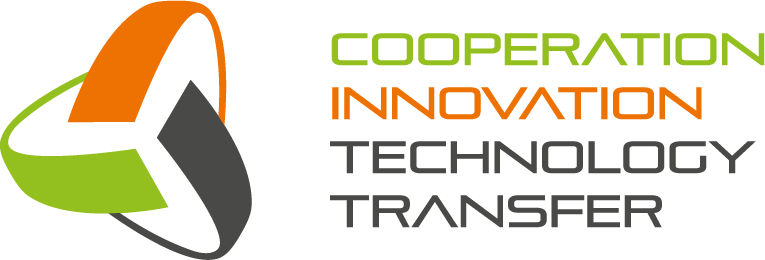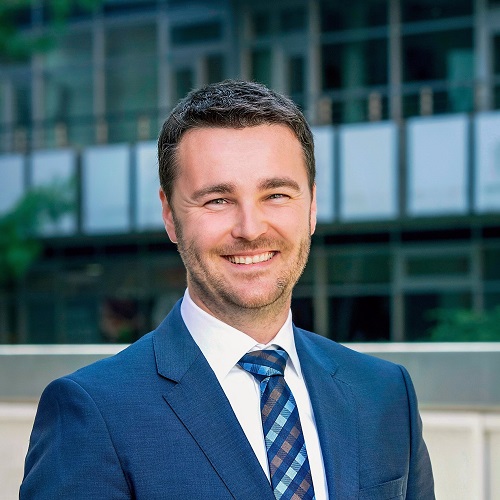Marek Repko graduated at Faculty of Mechanical Engineering of Slovak Technical University in Bratislava. He has worked already for 5 years with the top innovative companies in Slovakia via super-deduction on research and development. He started his career in Ayming company focused on financing innovations for more than 35 years (especially via deduction on research and development) as a consultant for innovations and currently acts as Head of Operations specialist.
Mr. Repko, how would you like to introduce yourself to companies, that have not heard about Ayming company or super-deduction yet?
Super-deduction on research and development is motivating instrument which aim is to encourage companies to improve their know-how, launch projects with unsure result and develop value-added solutions. They are entitled by the state authority to reduce tax base on costs invested in these projects by 100 % via supplementary deduction. This results in reducing tax payable and leaves in fact free financial resources that can be used in further development without limitations.
Ayming acts as a partner of these companies via covering all the process that companies could fully use potential of this instrument without excessive administrative burden. Ayming helps to set up processes with a goal to make project monitoring easier, identify the projects and decide on their technical qualification, prepares financial bases for application and also for possible tax inspection, guarantees correctness of the bases or provides advocacy of the project before tax authority. Ayming company works on super-deduction from very beginning. The company helped to apply it in more than 1900 research and development projects from various fields that saved companies´ costs more than 100 mil. €. Besides the tax deduction on research and development Ayming also offers consultancy services in subsidies and Patent Box fields.
Last year at COINTT 2022 Conference you held the presentation „Financing innovations through tax deduction for research and development in the context of real experience from practise “ where you presented interesting statistics from previous years. How do you evaluate use of super-deduction in 2022 and first half of 2023 in comparison with previous terms?
Admittedly, we see moderate decrease of interest, because after years where super-deduction´s percentage was on 200 %, it was reduced to a half that unfortunately discouraged especially small companies that were using this instrument and it was at the same time key instrument for their further research and development activities.
Which of cooperations between innovative companies you provide consultancy and academic institutions you see the most beneficiary in the most recent period?
We have several clients where we succeeded in setting up processes to buy the development services as much as possible just from organisations like Slovak Academy of Sciences, universities or other research and development institutions. I am glad to see increasing interest in this type of cooperation although I have to allege, that in that field situation can hopefully become only better.
Are there any other instruments besides super-deduction, that can be used as a motivation for innovative companies to perform research and development in Slovakia in cooperation with Slovak academic institutions?
There are different grant programmes available, for example those administered by Slovak Research and Development Agency, Eurostars or the newest Recovery plan calls, as an example of direct support form and on the other hand we have indirect instrument as super-deduction. We strive to push through higher support of this form of cooperation to really motivate companies to look for such possibilities.
Could you explain how Patent Box works?
Taxpayers can cover costs of development phase of project by super-deduction and in commercial phase they can utilise Patent Box. In particular, they can exempt 50% of incomes from remuneration of patents, utility models or software use, or 50% of incomes from selling goods which were produced while using particular patent or utility model. In ideal case the company starts to apply super-deduction in research and development phase and then they utilize Patent Box in commercial phase. As I mentioned, Patent Box could be very interesting instrument, but its practical use is significantly limited as experience has shown.
Which problems can companies face in applying for deduction and how you can help them in that case?
They are lot of possibilities to make a mistake although the instrument itself is very straightforward. From simple formal faults to incorrectly identified costs and projects. Very often happens that companies applying for deduction ask us for revision and they do not have basic documents needed, or we find significant errors there. These formal mistakes can also lead to obligation of extra payments for tax saved, penalty payments and interest on late payments. We cover all the process of research and development deduction preparation from identifying projects and costs through the preparation of full documentation needed, providing sets of recommendations/directives etc., to the assistance in tax return preparation or possible advocacy before the tax authority.
Are there any limits who can apply super-deduction? Can also universities utilize it?
This instrument is designed for natural and legal entities that deal with research and development activities and do not assert tax concession for recipients of incentives. Services provided by universities can be also included in calculation of research and development deduction, but to avoid double financing of the same cost they cannot apply for it.
You have mentioned in several sources that research and development deduction is established in other countries as for example Poland or Czech Republic. What are differences in funding research and development activities between Slovakia and these countries?
There are huge differences. These countries apply systematic solutions improving business environment and supporting companies in activities connected with research and development. Unfortunately, in our country short-term solutions still prevail over systematic ones. E.g., in Poland they have several other instruments directly amending deduction and they introduced tax credit as well. Following Slovak pattern, they raised deduction´s percentage to 200% (although it applies only to salaries) while in Slovakia the deduction was reduced, on contrary. Another difference that does not influence positively on sense of security are law changes. Deduction´s percentage has consequently raised from 25% to 100%, 150%, 200% and since this year it was reduced again to 100%. This negative change especially overshadowed all positive adjustments in accordance with §30c Act No 595/2003 Coll. on income tax and will affect negatively mainly small and middle-sized enterprises.
Do you also evaluate novelty of idea/innovation in super-deduction process utilisation? If yes, in which way?
Yes, identification of key parameters, e.g., novelty is a basic condition for applicability of super-deduction on research and development. Law refers to so called Frascati manual, where other four key attributes that have to be fulfilled at the same time are subscribed and all of them have to be analysed and evaluated for each project separately.
Are there attempts to misuse the super-deduction via speculative practices? What experience with this issue do you have?
Speculative practices are everywhere, but I do not consider the super-deduction to be a subject of misuse. Taxpayers rather do not know all aspects of super-deduction which can lead to claiming incorrect costs or poor use of its potential from their side.
How do you see progress of research and development in Slovakia? What trends do you find in the most active branches where research and development are performed?
In my opinion, we do not achieve potential of research and development by far. Solutions that can be interesting worldwide are created here but they are very poorly promoted and even more poorly supported. We have enough people, but we must create suitable environment for them to encourage them not to live the country, but stay here and create added value here, at home. Regarding trends, it is currently without doubts digitalisation and automatization of processes, not only in IT sector, but also in production, for example. However, it is not specificity of Slovakia but worldwide trend that significantly accelerated during Covid-19 pandemic.
What about your recommendations for companies of financing their research and development activities?
I would like to emphasize that there is a too few possibilities here so they should not ignore them. If they focus or are planning to focus on activities that are new with uncertain final result, I advise them to find stable, reputable and experienced partner who can help them in these issues so they can pay full attention to the project itself.
Could you tell us about perspective of super-deduction to 2024? Do you think that its percentage will stay at the same level as in 2023?
We are a part of working group by the Government Office of Slovak republic that works on preparation of Article on super-deduction, that can significantly improve its use and impact. I will really welcome if this were accompanied with raising percentage of support offered but we have to wait for elections´ results and see if new government wants to enforce the change and follow this line afterwards.
The COINTT 2023 Conference will introduce „white spaces in innovations and technology transfer“ as a main theme. What „white spaces“ do you see in using the super-deduction by Slovak companies and generally in financing of development of their innovative products?
As I mentioned before, there are still many companies that do not use super-deduction at all for various reasons. Many of them are not able to identify research and development activities, do not know how to prepare legislative documents demanded by law or are afraid of administrative burden. Another white space we see in services that they could buy from institutions as Slovak Academy of Sciences or universities/other higher education schools and include them into super-deduction, but they do not use this occasion. Ayming´s mission is to fill in these „white spaces“, raise awareness of them and help companies to prepare projects as raising number of companies focused on innovations and technology transfer will affect quality of life of whole society.
Why is the COINTT Conference important in your opinion? What do you think about it?
COINTT Conference is an important event, because it offers possibility for scientists and entrepreneurs to share opinions about the newest trends and progress in technologies, innovations, research and development. These discussions are necessary for making the environment better and improving cooperation between academic and private sphere. It is essential to create a space for better understanding and identifying occasions that will bring closer those two sectors. I think that organizers were able to create great forum for discussions and exchanging ideas. I am glad for the possibility to participate in panel discussion on super-deduction and hear opinions from experts in different fields.
What did you like at COINTT 2022 and what do you probably look for at COINTT 2023?
I liked its thematic content and atmosphere of the Conference. I also look for COINTT 2023 as I believe the organizers will introduce again interesting speakers and topics that promote investing into innovations in Slovakia.


